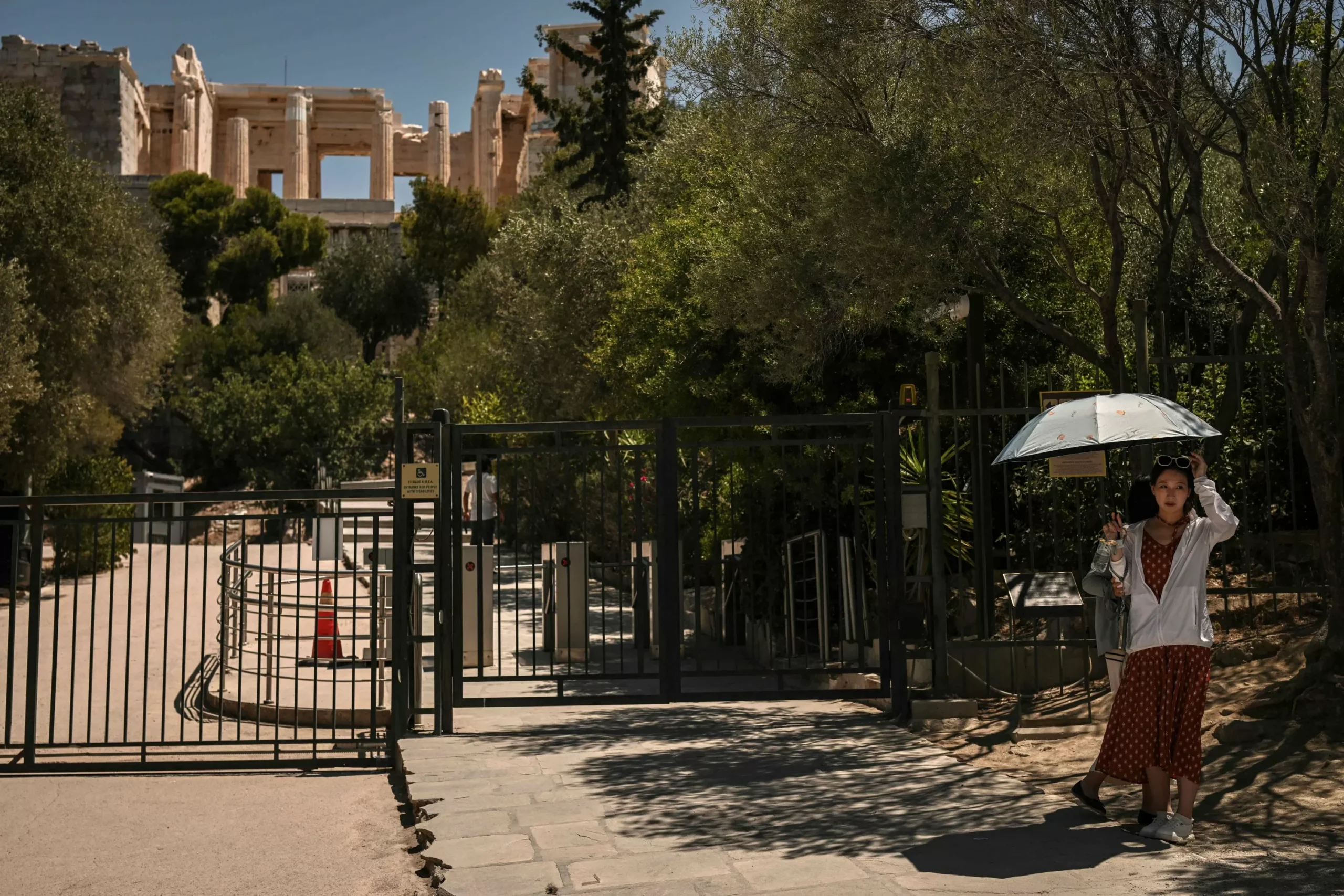Greece Closes Acropolis as Heatwave Grips Country, Taking Precautions for Tourists
Greece has always been a popular tourist destination, known for its beautiful beaches, rich history and iconic landmarks. However, the country is facing its second major heatwave of the summer, with temperatures soaring up to 41 degrees Celsius (107.6 degrees Fahrenheit). In response, authorities have taken precautions to ensure the safety of tourists, including temporarily closing the Acropolis during the peak of the heatwave.
The Acropolis, a UNESCO World Heritage Site and one of Greece’s most famous landmarks, was closed for several hours on Tuesday as temperatures continued to climb in the country. This precautionary measure was taken to prevent any health risks for visitors, as the ancient site lacks significant shade and can become extremely hot during peak hours.
This is not the first time that Greece has taken such measures during a heatwave. In 2019, the Acropolis was also closed to visitors during a similar heatwave. The country’s Ministry of Culture and Sports released a statement saying, “We regret the inconvenience caused to visitors, but the protection of public health is our top priority.” The statement also reminded tourists to take necessary precautions and advised them to visit the site early in the morning or in the late afternoon when temperatures are cooler.
While the closure of the Acropolis may have disappointed some visitors, it is a necessary step to ensure the safety of everyone. Heatwaves can have detrimental effects on human health, especially for those who are not used to such extreme temperatures. It is important to remember that the well-being of tourists is just as important as the preservation of cultural sites.
In addition to closing the Acropolis, other tourist sites such as the Temple of Olympian Zeus and the Ancient Agora have also implemented measures to combat the heatwave. These include providing extra shade, setting up cooling stations and making sure there is a steady supply of water for tourists.
The Greek government has also urged citizens and tourists to take precautions during the heatwave. This includes staying hydrated, avoiding strenuous activities during the hottest hours of the day, and seeking shelter in air-conditioned spaces. The government has also advised the public to look out for their relatives and neighbors, especially the elderly and children, who are more vulnerable to the effects of extreme heat.
Despite the high temperatures, tourists have continued to flock to Greece to enjoy its beautiful landscapes and rich culture. A German tourist, Mr. Schmidt, stated, “I understand the importance of taking precautions during this heatwave. I appreciate that the authorities are looking out for our safety and the preservation of these historic sites.”
The closure of the Acropolis and other measures taken by the government have not dampened the spirits of tourists. Instead, it has motivated them to learn more about the culture and history of Greece, as well as the challenges the country faces during summer heatwaves.
Greece is not the only country facing extreme temperatures this summer. Heatwaves have been recorded all over Europe, causing health issues and disruptions to daily life. The increasing frequency of heatwaves is a clear sign of the impact of climate change. It is important for everyone to take steps to reduce their carbon footprint and help combat this issue.
As the temperatures slowly start to cool down, the Acropolis and other tourist sites will reopen and welcome visitors once again. In the meantime, let us appreciate the efforts of the Greek government to keep tourists safe and preserve their historical sites. Let us also remember to take precautions and stay safe during these challenging times.
In conclusion, while the closure of the Acropolis may have caused some inconvenience, it is a necessary measure to ensure the safety of tourists and the preservation of the iconic landmark. Let us continue to support Greece and its efforts to combat heatwaves and protect its cultural treasures. Let us also take this opportunity to reflect on the importance of taking care of our planet and working towards a more sustainable future.






![Complete BritRail Pass Guide [Types, How to Use It, Pros + Cons]](https://inside-news.uk/wp-content/uploads/2025/06/00221EB4-BCA2-4DBB-6CD4-83DBC37D71FA-120x86.webp)















